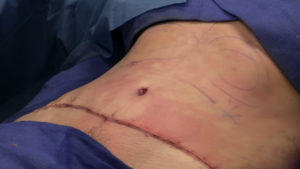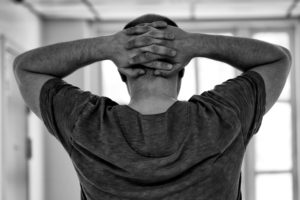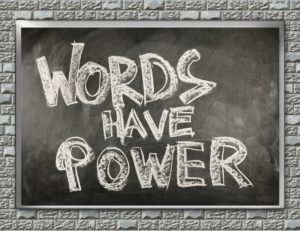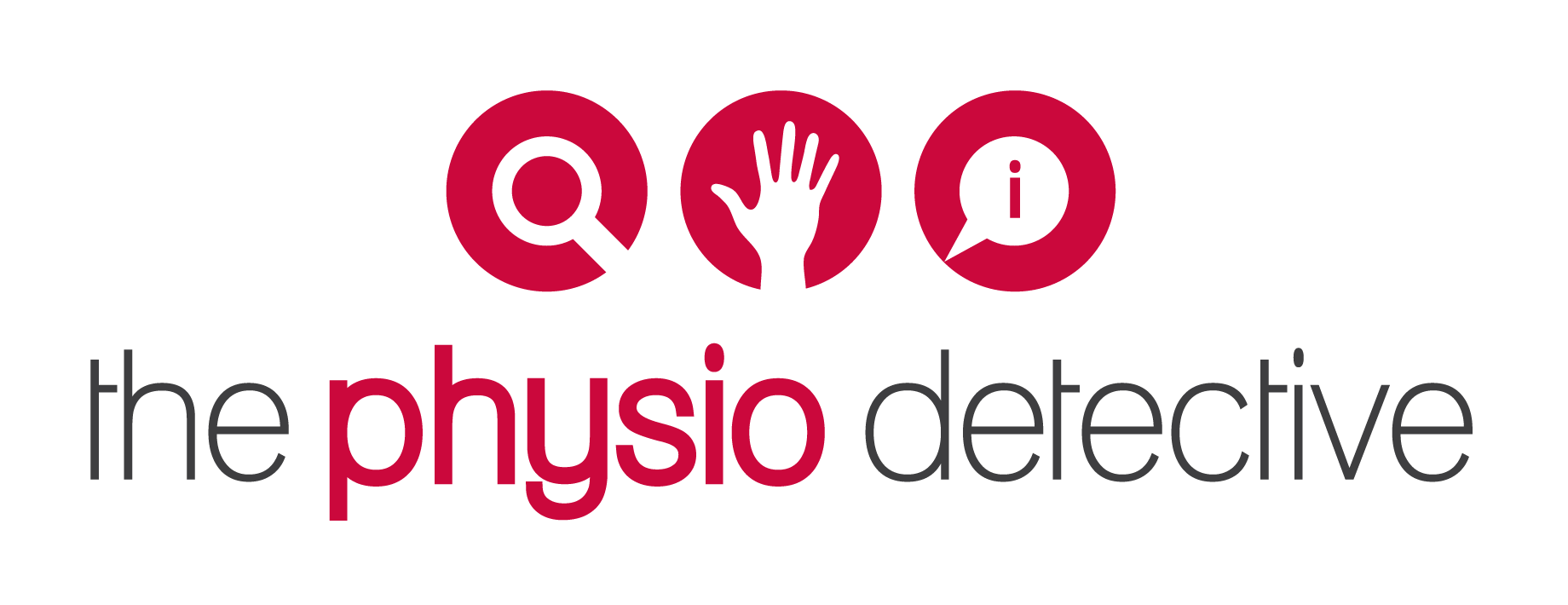Words Have Power – What Kind of Scars Are You Leaving Your Clients?
 Scars are interesting things...for some they represent injury and imperfection...for me, they represent just what an amazing body we have that can heal itself and adapt to injury! However, long after the physical scars have healed, the psychological trauma can still remain. This blog hopes to address the issue of how we health and fitness professionals often unintentionally scar our clients and how to leave our mark, our SCAR if you will, in a different way...
Scars are interesting things...for some they represent injury and imperfection...for me, they represent just what an amazing body we have that can heal itself and adapt to injury! However, long after the physical scars have healed, the psychological trauma can still remain. This blog hopes to address the issue of how we health and fitness professionals often unintentionally scar our clients and how to leave our mark, our SCAR if you will, in a different way...
When Life Was Easier...
In the Postural / Structural / Biomechanical (PSB) model, life was easier (click here to read a bit about this...). A patient would come in, they would have some sort of problem, I would find the problem and administer the solution and I would move on to the next patient with a problem.
My problem was that I was too busy to notice the people I had left behind, the ones that didn't really get better or weren't fully better. The ones that just lied to me to avoid telling me that I wasn't helping and didn't come back. The ones that earnestly took my well-intentioned words and applied them with religious fervour.
 An Unforgettable Story...
An Unforgettable Story...
I remember one young woman. She was in high school and had a common posture of an upright spoon with lots of anterior tilt in her pelvis - it was so significant that I had written on the inside cover of the folder (yes, paper notes!) "J-Lo posture". Now, I had been taught that this wasn't good for you and given that she had come to see me for a low back pain, then obvious solution to me was to advise her to "correct her posture" by reducing the anterior pelvic tilt (I don't do this anymore BTW!). Anyway, 3 years had passed and she had booked in to see me again. She is a bit older, now at college and seeing me for some neck and shoulder pain...but I was confused. I had looked at her and looked at the file and her posture was completely different! She had a very flat back and a very flat gluteal region - like a cliff! So I asked her "Are you <name> and your date of birth <this>?" and she confirmed her identity - I thought maybe the file had been pulled out incorrectly or something. Nope, it was the same woman. So I said to her "I have written on your file 'J-Lo posture'...but you don't have that now!" to which she said, rather proudly, "yeah, you told to change it so I did. I kept adjusting my posture until I felt it stretch at the front like you showed me and I got rid of the arch in my back".
I died a little bit inside.
That's not what I wanted her to do.
I was hoping for a 5deg change, just a small difference. But I didn't tell her that.
I had assumed that because she was a teenager, she would do it for a few days or weeks and then forget and that would be fine...but I didn't explain that to her.
I hadn't explained to her that the brain dampens the signals down once you adopt a posture consistently - it kinda sets a new zero point where it feels the new "normal" is...but I didn't explain that to her.
So this woman had thought that any arch was bad - that's my fault. She though she had to constantly correct her posture - that's my fault. She thought she had to keep seeking the uncomfortable feeling of stretching in the anterior hips to feel like she was standing correctly - that's my fault!
 Words Truly Have Power...
Words Truly Have Power...
Through my very words, I had changed her very posture and attitude and beliefs. I had left a scar on her. I had planted dangerous beliefs - and I hadn't even meant to. I am so thankful that I hadn't caused too many problems. With just some extra time explaining what I had meant and showing her different ways to do things, she quickly adjusted and was fine...
...but how many others have been harmed by my words?
I know of many others, both male and female, who have been harmed by words and attitudes from health and fitness providers.
Many women with pelvic floor troubles tell me about the loss and grief they have from being told they cannot exercise or lift or do anything of the things they truly want to. They feel like their goals are minimised and are often told to "just walk or ride or swim"...I know many who want to say back "BUT I DON'T F&*$ING WANT TO WALK OR RIDE OR SWIM!"
Our words have such long last effects on what our clients believe, which in turn directs how they behave, which in turn affects their experiences in life.
To what extent are we considering the effect of our words on our clients?
If we truly want to leave a patriarchal / matriarchal system where we health and fitness professionals know what's best therefore you should do as we say, then perhaps we should stop being like parents to our clients and just give them the information and let them do the adulting!
 Leave A Different Kind Of SCAR...
Leave A Different Kind Of SCAR...
We cannot change the fact that our words and actions will have an effect on our clients - in fact, that is what they want to come and see us for - for change and to have a different result to the one they are living right now!
So if we are going to leave a mark, let's leave a really good SCAR!
SCAR for me is Strong, Capable, Adaptable, Resilient.
Strong
Too often we think of our clients as being weak and our language reflects that. "Oh, you're core is weak so don't do that until you have a stronger core"...whatever that means! Or "Your tissue integrity is really poor" or "Your pelvic organ prolapse will only get worse" or "That disc will bother you for the rest of your life now it has been injured".
Phrases like that aren't helpful!
Instead, we should start with the assumption that most people we interact with as clients will be stronger than they think. Instead of trying to find all the weak things about them, why not start with all the great things about how they are coping despite how they feel?
Capable
Our clients are also very, very capable. Most of my clients can walk in the door. Lots of my clients have to climb the stairs to get to the door. So many of my clients can lift above their bodyweight.
Most mothers that I see are running a household, often pregnant or post-natal, running around after kids, doing the lion's share of the housework, juggling all the relationship worries with family, friends and relatives as well as often working and trying to squeeze in a bit of time for themselves. I'm not dumb - I know that working 15hrs a day as a Physio is actually easier that doing what my wife does.
So why do we feel the need to make our clients feel like they can't do something? We are experts at making our clients aware of their unconscious incompetence - they don't even know they suck at something! And then we are great at keeping our clients in conscious competence once they finally learn how to do an exercise 'perfectly' before we let them do the next progression instead of progressing to unconscious competence as soon as possible with as much variety as possible!
Adaptable
I don't even know where we get the idea that our clients just do things "perfectly". our bodies are designed to move in many different ways. We adapt to the ground we walk on and have done for thousands of years! We adapt to living in all kinds of weather extremes. We can learn new things. The old idea that our brains can't learn new things has been thoroughly debunked.
Yes, things degenerate over time but this is normal. It doesn't make you invalid, incapable, rigid and unadaptable! It means that you can fight against the slow decline and improve on where you are right now!
Do you know how long and complex it has been to get robots to do even just a small hill? I remember going to a Commodore 64 robotics club where we learned how to program a robotic hand. My dad drove me 45mins to get to this club. I remember marvelling at just how much code and sampling needed to occur just to get the hand to do something simple like change positions.
Our bodies are amazing and we need to keep training it to adapt to any situation it can. If we are rigid in what "perfect" means, we are just limiting our clients' movement vocabulary and that results in them being unable to express their athleticism and strength and power and speed when the situation isn't "perfect"...
Resilient
...and lastly, we are resilient! We can cope! Resilience for me in my world is the ability to cope with a given situation and the best way to train resilience is to expose my clients to as much variety of range of motion, load, speed and stress as possible. It's ok to bend and twist. Maybe we won't load it as much as a deadlift but we can certainly help you and your brain get familiar with previously threatening positions.
So many times we approach our clients with the idea that they are fragile and need protecting from "bad" things like "bad exercises". There is no such thing as a bad exercise...just decisions which may be wise right then and there for that person at that time and situation.
A classic example is ankle rehabilitation. I have done my right ankle so many times I have lost count. I had done the right things before - do my ankle mobility exercises, do the Theraband training and balance board work but it never really prevented me from having further ankle sprains.
So about 21 years ago, I thought, right, I am going to train myself to cope when my ankle rolls. And I did. I taught myself how to land on the side of my ankle. When I was lighter, I could stand on one leg, roll to the outside of my foot and come back up again. I also trained myself to stop pushing down on my leg when I feel my ankle give way...this leads to come comical situations on the street because suddenly it looks like I am about to fall over but I haven't sprained my ankle in a long long time and I have been in many situations where I would have. That is one of the earliest physical examples I have in my career of resilience.
Another is that I went bald at an early age - like from 8 years old I had bald patches and fully bald by 14 or 15yo. I got picked on and called names and people stared. I remember watching Roxanne - a Steve Martin movie from 1987. I love this movie! Anyway, being an adaptation of the story Cyrano De Bergerac, he had a big nose...and there is one scene where he gets picked on by this big guy in a bar and he SLAYS this guy with making up better insults. I took this on and started to make up names for myself and comebacks to the names I often got called. I felt in control of my situation and was able to cope with being bald at a time when long hair for guys was IN and the only bald people my age were neo-nazis and people with cancer!
What does resilience look like for you? For your client? There are so many stories to share - please feel free to share them below!
Client Stories and Experiences
So if we are to take these messages to our clients - that they are STRONG, CAPABLE, ADAPTABLE, and RESILIENT, then maybe our impact on their life and the lives of others might be a longer lasting, more beneficial one.
The first step is to listen to our clients and acknowledge what they are going through, where they want to go and what they want to do.
I have included 3 stories for you to listen to.
First is Margaret. She is a friend of mine and we were talking about her experiences with dealing with pelvic floor problems and surgery and how what the therapists she saw had an effect on how she was feeling...now I want to make it really clear that I don't think they did anything necessarily wrong, just that they may have realised the impact of their words.
Next is Haley Shevener. She is another who suffered from the effects of words and beliefs during her struggles to understand Pelvic Organ Prolapse and its effect on her life. Have a listen to her video.
The last story is of Vicki - a participant on my course The Female Athlete. The first video is the shorter 10mins summary but the longer 60mins video is her consultation and progress through the course. She has been keeping us up to date and is doing well and has realised that it wasn't exercise that was the problem but how she did things at home!
The Female Athlete Course - Demonstration Patient - Vicki from The Physio Detective - My PT Ed on Vimeo.
I plan to have more patient stories up for people to listen to so keep your eyes peeled for more updates!
Conclusion
Your words have power! please be careful what kind of an impact and mark your words will leave - instead of leaving a scar that is based on them being weak, incapable, degenerative and fragile, let's leave a SCAR that is strong, capable, adaptable and resilient!
I would love to hear from you about what you think about this blog post and the ideas contained in them.
If you would love to tell your story, please let me know by sending a message in the contact form.
Thank you!

This post can’t help but make us review the way we communicate with clients, and the words we do that with! Fantastic! Thank you for being so open and honest about your experience. ?
Reading this as a new grad sets the stage for an aspect of my career that is truly important – for all our careers ultimately supporting better quality of life for our clients!!
So true Myranda. Thank you for your comments.
We are going to impact our clients with our words. “What will that impact be?” is the question we need to ask ourselves consistently.
I’m not perfect and have to remember to do this – I have to remain vigilant, not allow myself to be complacent!
Great reminder on the weight of our words. Thanks for sharing. As my own personal example I once had a client tell me : Brigitte , whenever you say “try to do this” I always feel like I’m setting myself up for failure.” I thought hmmph, thanks so much for sharing. I became more mindful about the words I use and their impact (I often use now “do your best to…”). Of course each person reacts differently but it’s more important to connect with our clients then to stay stuck in our routines
Thanks Brigitte and thanks for sharing your insights – definitely agree with connection! Cheers
This is a great post. Last year I went to a PT for evaluation of post-concussion symptoms. In the course of the eval, he noticed some of my limited mobility issues. These were things I had been living with and trying to correct. The PT brought my attention to the various ways in which I was unconsciously compensating for weak or underused muscles. As I started to work with him on daily training to retrain my movement patterns, at one point I asked him how to summarize my issues. He said that I had “a poor appreciation for functional movement patterns due to my relationship with pain.” At the outset, this made me feel like I had done something wrong. In 44 years, nobody had ever told me that the way I walked was not the correct or functional way. How was I supposed to have an appreciation for functional movement? Only more recently did I realize that describing my movement patterns as “dysfunctional” has led me to feel depleted confidence and more fear in basic movements. As i’ve diligently worked with other trainers and PTs and movement coaches, and trying to keep up with my exercises, I notice how much I get caught up in anxiety around the movements and my results (or, more accurately, perceived lack of results). My daily workouts and physical activity used to be a source of respite for me; a way out of my anxiety and into my body. But over the past four months, they have become the primary source of my anxiety. I leave the gym every morning feeling defeated and depressed, because I invested so much in working with this PT daily for 5 months and still don’t have an “appreciation” for whether I’m doing the movements correctly. I find myself resistant to going to the gym in the morning – something I did with excitement daily for 6 years (and still do daily, but not with excitement). And I’ve lost any gains I had while I was working with him. I’ve typically relied on the boost I get from my daily workout to fuel my work throughout my day, and so this has had a repercussion on the rest of my work and my life. In working with some new PTs, trainers, and movement coaches in a new city, I’ve learned that there can be a lot of different ways to move “functionally” and it’s not always the same for everyone. Also I’ve been made aware of other issues which might be at the root cause of the issues he diagnosed, so I wonder if he was even working with me on the right things. While I’m sure my “relationship with pain” might be a partial cause of some of my issues (I allow sensation to stop me from pushing farther), I’ve also learned that some of it is biomechanical — for example my weak rotators and an inability to get the hip in the socket prevents me from sitting back into my hips as much as any sensation that tells me something is “wrong.” The bottom line is the body is complicated. I realize that the PT didn’t mean to leave scars. He was overall very supportive and understanding. But I also have learned in my own work as a coach that different people hear the same things in different ways. You have to really understand your clients and how they process what they hear.
Hi Renee
Thanks for the comment and apologies for the delay in replying – been very busy.
I am sorry to hear how such words affected you.
I am happy to hear you are working with some new team members who sound like they are showing you have strong, capable, adaptable and resilient you are.
Cheers
Pingback : Articles Of The Week September 9, 2018 – The Massage Therapist Development Centre